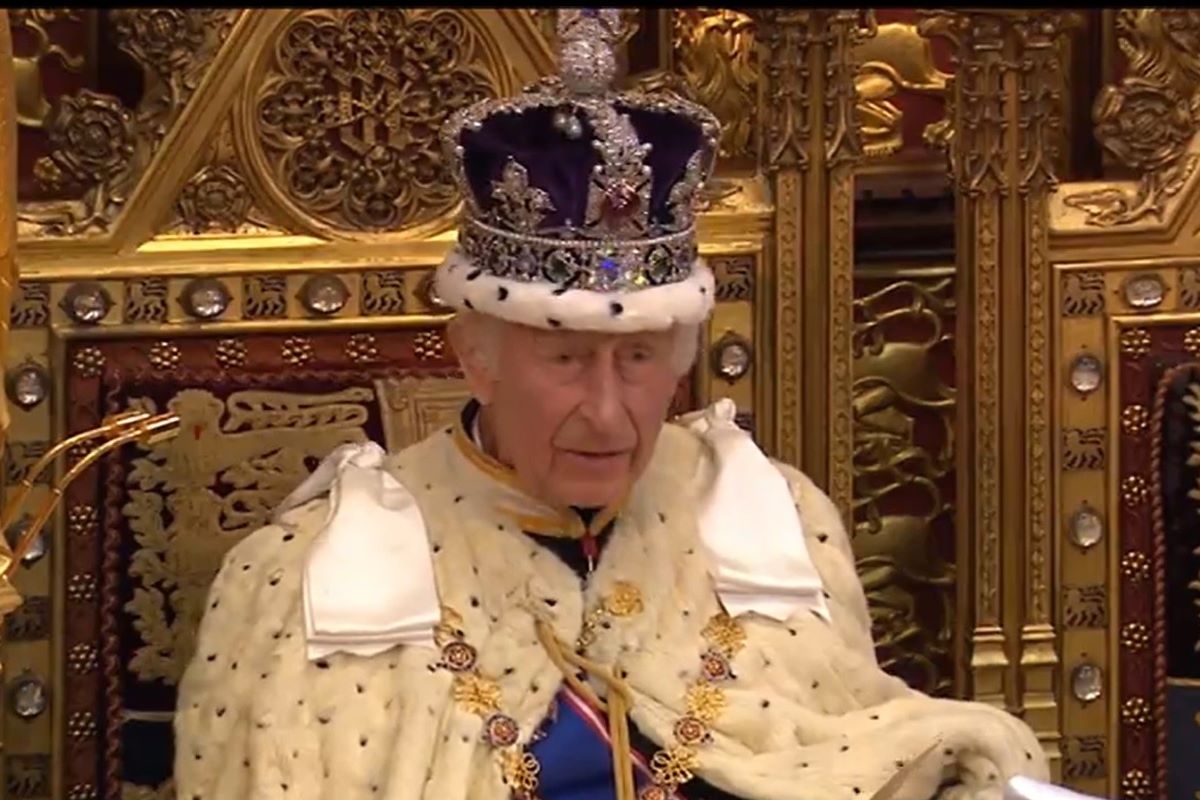
King Charles III said his government will support local growth plans that bring economic benefit to communities
Photo: UK Parliament
King’s Speech: What’s in it for the arts?
While the Labour government's legislative plans do not feature anything explicitly related to the arts, a number of proposals are likely to have an impact on the sector.
Labour has set out plans to extend devolution across England by allowing mayors and local authorities to take on new powers, with cultural policy expected to be part of the deal.
Outlining the government's legislative plans for the year ahead at the State Opening of Parliament today (17 July), King Charles said the move will "support local growth plans that bring economic benefit to communities".
"My government believes that greater devolution of decision-making is at the heart of a modern dynamic economy and is a key driver of economic growth, and my ministers will introduce an English Devolution Bill," he said.
READ MORE:
- Starmer pledges to devolve decisions on culture
- Coalition forms to develop cultural devolution proposals
"[The legislation will] give new powers to metro mayors and combined authorities."
In January, setting out his plans should Labour win the general election, Prime Minister Keir Starmer said devolution would redistribute decision-making power away from Westminster in several policy areas, including culture.
However, he stopped short of releasing specific details, so it is currently unclear how the devolution of powers could affect the remits of Arts Council England (ACE) or the Department for Digital, Culture, Media and Sport (DCMS).
Education
Alongside devolution, the King's Speech featured a commitment to raise education standards and break down barriers to opportunity.
The Children’s Wellbeing Bill will "put children and their wellbeing at the centre of the education and children’s social care systems", a briefing note issued by Number 10 on the legislative proposals states.
"The Bill will remove barriers to opportunity and raise school standards to ensure the school system is fair for every child, no matter their background, and deliver our manifesto commitments on children’s social care to ensure that all children can thrive in safe, loving homes."
Labour has previously committed to placing the arts and creative subjects at the heart of the education system. In March, Starmer outlined plans to reform school accountability frameworks to include arts subjects and allow children to study a creative arts subject or sport until they are 16.
Sector skills
Meanwhile, an Employment Rights Bill will be tabled to end the "exploitative" use of zero-hours contracts and introduce various new workers’ rights, and a Skills England Bill will set up a new arm's-length body of the same name to boost training.
Philippa Childs, Head of trade union Bectu, says both pieces of legislation are likely to have implications for workers in arts and culture.
"We have written to the government about the need to improve rights and protections for the self-employed; and we will be keeping a keen eye on the draft legislation and how it impacts all workers in the creative industries," she said.
"The sector continues to be plagued by cyclical retention problems and skills shortages, and it’s critical that we now see a sustained, coordinated, and collaborative approach from the government to prioritise not only skills development but also retention of skills.
“For too long self-employed and freelance workers have received a raw deal, despite their critical contribution to the economy and our cultural life. We look forward to working with the new government to ensure that their flexibility and skills are recognised and supported.”
Artificial Intelligence
The government will also seek to establish "appropriate legislation" to place requirements on those working to develop the most powerful artificial intelligence models.
The British Phonographic Industry (BPI) said that while music is at the forefront of AI adoption, it is imperative that the AI "revolution" does not come at the expense of the UK's creative and cultural sectors.
"Any legislation on AI or data must ensure that human creativity is respected through a framework of authorisation to enable creativity and technology to flourish in partnership," a statement issued by BPI said.
"This requires appropriate measures on transparency, labelling and data collection. We look forward to working with the Government as it shapes its legislative plans further."
The King's Speech also outlined plans to "reset" the UK's relationship with Europe and improve trade with the bloc.
Join the Discussion
You must be logged in to post a comment.